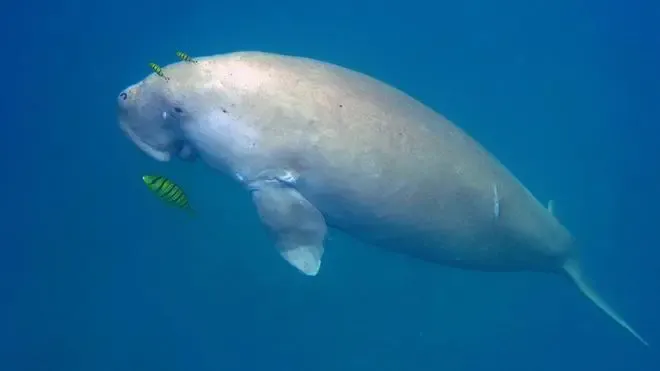Has Stalin Embraced Global Recognition for India’s First Dugong Sanctuary?

Synopsis
Key Takeaways
- Tamil Nadu's Dugong Conservation Reserve is India's first dedicated sanctuary for the dugong.
- IUCN recognition highlights the global importance of local conservation efforts.
- The reserve spans 448.34 square kilometers and includes vital seagrass meadows.
- Conservation strategies involve community participation and innovative restoration techniques.
- Support for this initiative could enhance resources for protecting the vulnerable dugong.
Chennai, Sep 25 (NationPress) Tamil Nadu Chief Minister M.K. Stalin expressed his enthusiasm on Thursday regarding the formal acknowledgment from the International Union for Conservation of Nature (IUCN) of India’s inaugural Dugong Conservation Reserve located in Palk Bay. He described this recognition as a remarkable global affirmation of the state’s marine conservation initiatives.
In a post on X, he commended the Tamil Nadu Forest Department and its conservation partners for their dedicated efforts to safeguard the vulnerable dugong and its delicate habitat.
This recognition was granted following a motion introduced by the Omcar Foundation, which was accepted during the IUCN World Conservation Congress 2025 in Abu Dhabi. The proposal garnered significant support, with 98 percent of member governments and 94.8 percent of NGOs, research institutions, and organizations voting in favor.
Environmental advocates noted that this endorsement positions Tamil Nadu’s initiative prominently on the global conservation landscape, potentially attracting new resources and expertise to the area.
Established on September 21, 2022, under the Wildlife Protection Act of 1972, the Dugong Conservation Reserve spans 448.34 square kilometers in northern Palk Bay. This region harbors over 12,250 hectares of rich seagrass meadows, which are essential feeding grounds for dugongs (Dugong dugon), a species categorized as “Vulnerable to Extinction” on the IUCN Red List.
These meadows also support diverse marine life, highlighting the ecological importance of the reserve.
The IUCN motion raised alarms about habitat degradation, harmful fishing practices, and the effects of climate change that threaten dugong populations and the broader Palk Bay ecosystem.
Members recognized the innovative restoration initiatives implemented in the reserve, including the use of bamboo and coconut rope frames to rehabilitate seagrass meadows, which have combined scientific knowledge with community involvement, creating a model for marine conservation replicable throughout South Asia.
The resolution called on IUCN members to collaborate closely with the Indian government, the Tamil Nadu administration, and local organizations to enhance habitat monitoring, establish sustainable fishing practices, and share insights with global dugong conservation efforts.
It also urged the adaptation of Tamil Nadu’s strategies in other areas of the Indian Ocean and beyond, where dugong populations face threats.
Conservation specialists believe that this global acknowledgment will enhance technical and financial backing, empower coastal communities in their conservation endeavors, and spotlight the urgent necessity to protect seagrass ecosystems and avert the extinction of the dugong.









